Member Directory,
1847 - 1922
William T. Blodgett
Varnish Manufacturer/Art Collector
Centurion, 1859–1875
William Young
Alexander, New York
New York (Manhattan), New York
Age thirty-six
Brooklyn, New York
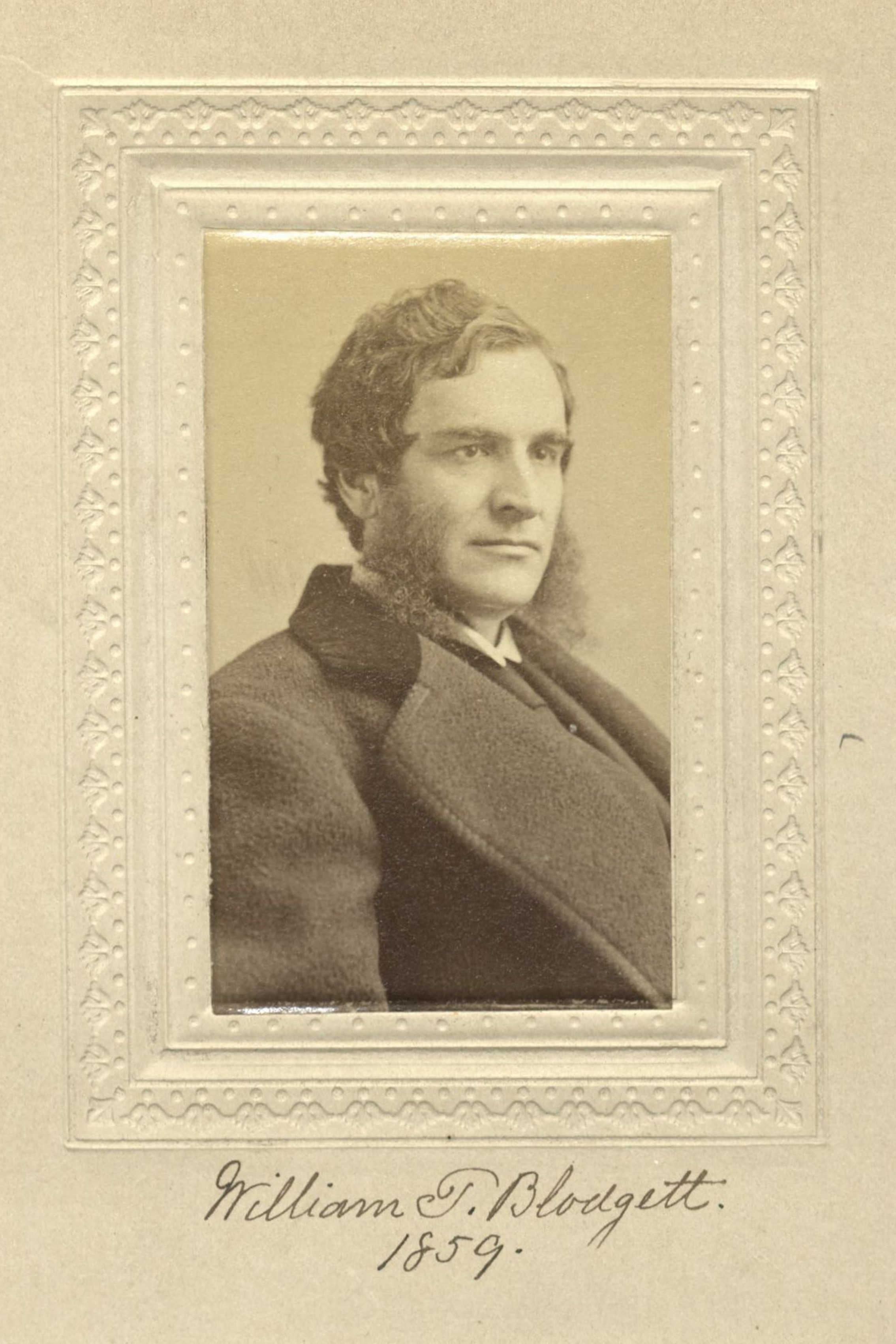
Century Memorials
The list of deceased members contains the names in the order of their loss, of Hays, Sherwood, Strong, Gaillard, Tillman, Stone, Kemble, Hegeman, Turney and Blodgett. The memorial notices, prepared and presented by your direction, express our appreciation of those we have lost with an earnestness of feeling and an appropriateness of phrase to which your Board can have nothing to add.
Augustus R. Macdonough
1876 Century Association Reports
Your Committee well hoped that they had completed this testimonial to so many honored associates, when they were informed of the decease of Mr. William Tilden Blodgett. So widely was he known in the Century, and in social life, and so many were his claims to our regard, that while the topics of commendation are so numerous, they seem to render eulogy less necessary. It is but justice to ourselves that we should recall, in few words, his title to our respectful remembrance.
Mr. Blodgett was a native of Western New York, and received his earliest training in its schools. His first studies of the picturesque in nature, were among its lakes and woods. These lessons of his youth never faded away. Through self-dependence, even in boyhood, he gained an early development of vigorous character and will.
Coming to New York in early manhood, he entered upon commercial life, with no special advantages of fortune. Whatever was wanting, he supplied by integrity, by quickness of perception, and by accuracy of judgment in the choice of agents and associates. His course thus begun, was marked by uprightness, energy, and eminent success. Early in his residence in New York he became a parishioner, and afterwards a vestryman, of St. George’s Church. He accepted the position as a means for the accomplishment of practical good. During his whole service, ending only with his life, he was ever ready to give judicious counsel to those who sought it, and to those in need he was an unfailing benefactor and friend. His charities sought no publicity. They sometimes were, but oftener were not, known, and do not admit of intrusion or enquiry. His executive ability made him a valuable accession to all benevolent undertakings which he deemed to have a claim upon his sympathy, and some of these may ascribe to him the first beginnings of their success.
One of his kindly labors yielded, in later years, a singular and unexpected fruit. Before the occupation of Rome by the present government of Italy, Mr. Blodgett, Mr. Botta and a few others, became warmly interested in behalf of the Italians resident in New York, many of whom were men of education—exiles of the old regime. To these they afforded relief and occupation in their necessity, and established schools for the education of their children. The occasion passed away, and Mr. Blodgett had almost ceased to retain it in his recollection. Years after, he visited Rome in furtherance of his artistic designs. He was surprised (on the day following his arrival) by a visit from an officer of rank in the king’s service. He learned that Count Cavour had known and remembered the work which had been done in New York. Mr. Blodgett received a decoration and honorable attentions from King Victor Emmanuel, which aided him in his acquisition of valuable works of art.
Mr. Blodgett regarded increasing resources as imposing new responsibilities. He was not neglectful of intellectual culture. In his hours of leisure he became conversant with English history and poetry, and at a later day, by his studies in Continental literature, he became well versed in the history of Art. Not neglecting private charities, he rose to a wider view of the means of diffusing scientific knowledge, and a better public taste. Of the American Museum of Natural History he was one of the earliest Trustees. The grateful testimonial of his associates has reminded us that he lent valuable aid in placing it upon a broad foundation, and in procuring the appropriation by which its permanence was secured. Early in his mercantile career he became known as a man of public spirit, who gave freely of his labor and income for the promotion of the general good.
The natural refinement of Mr. Blodgett’s character and his delicacy of taste led to an interest in art, especially in painting. His friendships with its professors were of early date. More than twenty years ago he had commenced the formation of a gallery of American Art, and his purchases were judicious and discriminating, he had made some progress, when his design was suddenly interrupted and laid aside. In the hour of its peril Mr. Blodgett became a most energetic and liberal supporter of the National Union. Was there need of money, nowhere was there a more liberal contributor, or one who knew better how to arouse the sympathies of others. Was a committee to be appointed for some laborious service, Mr. Blodgett’s name was among the first which was suggested. Such duties he never declined or slighted. He was ready to aid in raising new levies for the field, and in relief to the families of the disabled or dying. One of his patriotic services was so remarkable in its design and its results as to be worthy of especial commemoration. Mr. Blodgett was one of the chief promoters of the Fair in aid of the Sanitary Commission. He was early conversant with it, if it did not originate in his suggestions. During four months he gave it the full benefit of his administrative talent, and none could claim a larger share in its plan, its details, and its success. It contributed one million of dollars to the sanitary uses of the Army of the United States.
So many were the labors which he shared with others during the restless activity of the time, that it must suffice to mention but one beneficial work which Mr. Blodgett, almost alone, prompted and sustained. He made liberal provision for the publication of loyal and national tracts, from the pen of his friend Dr. Lieber, and others of our most eminent publicists and historical scholars. They entered with enthusiasm into his project. Their essays, thus given to the world, were everywhere reproduced by the daily press. They had no trifling influence in confirming the wavering and doubtful, and in enlightening public conscience and opinion, both in America and Europe.
Quiet came again, and Mr. Blodgett resumed his purpose of diffusing an enlightened public taste. Soon after the war, a number of men of culture proposed the foundation of the Metropolitan Museum of Art. Mr. Blodgett was one of the first who saw the value of the conception. By generous gifts, and by purchasing, at his own risk, an excellent representative collection of the Dutch and Flemish schools, he, with a few associates, gave to the Metropolitan Museum of Art its earliest title to its name. He assisted in perfecting the details of its plan, and in kindling the enthusiasm of others who could aid in its accomplishment. He saw its success assured, and left it with a future full of promise and hope.
In many of the best enterprises of the last ten years, Mr. Blodgett was in some manner active, as an originator or a promoter. Among these should be mentioned the establishment of a journal of the highest literary ability, which, in political philosophy and literary and artistic criticism, bears no unfavorable comparison with those of London and Paris. Mr. Blodgett was a principal founder of the New York Nation.
As years went on, Mr. Blodgett’s views expanded with his resources, while he became more conversant with the history and literature of Art. He determined on the formation of a gallery of the best masters of America and Europe. For such a collection, “The Heart of the Andes” was a noble beginning. In prosecuting the work, his acquaintance with artists rendered, him eminently successful. His enthusiasm grew with his acquisitions. He availed himself of the judgment of the ablest experts, and spared no expense for their services or their counsel. His own knowledge of his subject everywhere commanded respect. He had become well known in Italy, in Belgium, and in Paris, as one to whom nothing of inferior merit could be offered with any hope of success. The result was, a rare assemblage of the best works of modern art. French, Dutch and English landscape and portraiture were represented by specimens such as had not before been the prizes of an American collector. Some of these still remain in Europe. As others were brought to Hew York and placed upon his walls, they were freely opened to the view of students and lovers of art. Men eminent in letters, the welcome associates of many years, who were partakers of his abundant hospitality, derived much gratification from the treasures which added to the social enjoyment of their genial possessor.
While so many liberal acts had given a wide-spread popularity to his name, Mr. Blodgett sought nothing from political life. He well knew that public office is not often, now, the school of public spirit. His zeal for public improvement showed itself in nobler ways—in the earnest performance of the duties of a citizen—through the press, in the cultivation of the public conscience and taste, and in giving the aid of his wealth and executive ability to institutions of benevolence. He labored with equal zeal, let us hope, in the end with no less success, for the reform of our municipal institutions, and the requirement of a higher standard of character in public office.
Mr. Blodgett’s private sympathies were not narrowed by prosperity. The successful business of many years did but increase the kindliness which had marked his life, and which never faltered until its close. When friends had fallen upon adverse fortunes, and needed sympathy or aid, he did generous acts in the most delicate way. He conferred the deepest obligations with such natural refinement of feeling, that he accomplished the highest good without wounding the sensibilities of the receiver. It is sufficient to make this brief reference to things which abound in the memory of the living, but which could not be further mentioned without awakening recollections which belong only to the sanctity of private life.
How far Mr. Blodgett would have prosecuted his designs for the promotion of artistic studies, what would have been the extent of his acquisitions, and what their ultimate destiny, it is useless to speculate. Let us hope that his labor may not be lost, that his collections may remain as the fittest monument of his liberal and far-seeing wisdom. His life, sadly shortened as it has been, has accomplished its object if other men can take up the burden where he laid it down,—if it can be known, as he knew, that the true service of art is not, as too often regarded, like that of plate and equipage, as the badge and decoration of social success. A school of art founded under such degrading auspices, produces nothing which the world cares to remember. It was not with such a collection that Mr. Blodgett hoped to associate his name. It was his ambition to create institutions through which a love of science, and a taste for things elevated and refined, may come to be esteemed not as alien to, but as a part of, the things of daily life. He may thus be counted among those who, in private station, have labored for the highest public good, and have found that unconsciously they have achieved works more enduring than the rewards of party, and abiding the test of time.
With the Century, a Society for the promotion of Science and Art, of which Mr. Blodgett was for sixteen years a member, his associations were of especial intimacy, and his departure will be sensibly felt among us. He was warmly interested in our prosperity, during four years filled some of our most responsible offices, and found great pleasure in frequent attendance at our social meetings. He brought to them the judgment and experience of a man of business not narrowed by his calling—a knowledge of Art and its history not perverted or made extravagant by sentiment or by enthusiasm—an acquaintance with the literature as well as the politics and interests of the day. We have noted the wide variety of his topics,—the facility of his recollection,—the readiness with which his information became available—and above all, the uprightness of his character, the kindliness of his judgments, and his interest in the welfare of other men. In social and in graver hours, he inspired that regard which followed him through life, and with which we assembled to pay the last honors to his remains.
Henry C. Dorr, Henry R. Winthrop, and Augustus R. Macdonough
1875 Century Association Memorial Notices
Related Members
Member Directory Home-
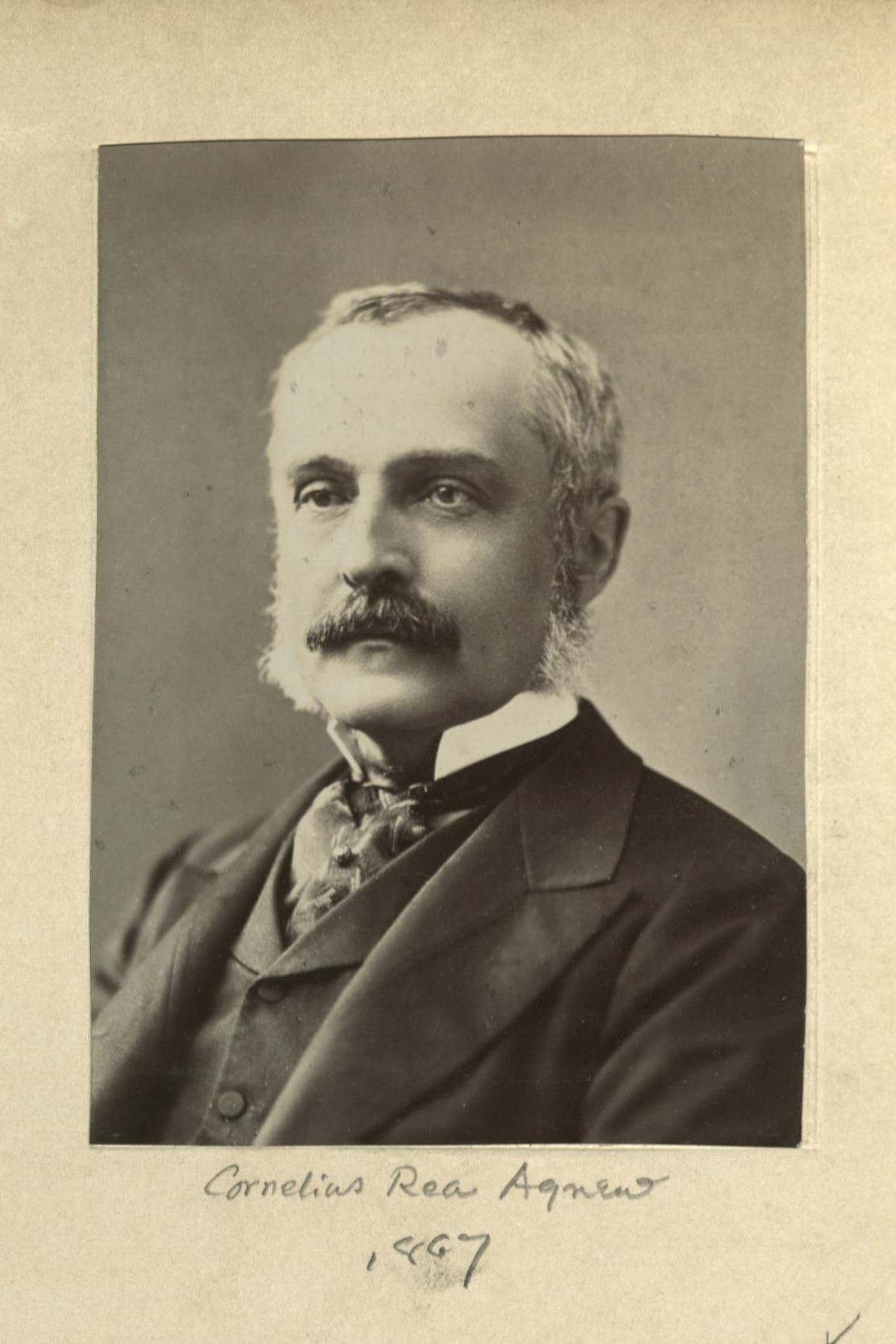 Cornelius R. AgnewSurgeonCenturion, 1867–1888
Cornelius R. AgnewSurgeonCenturion, 1867–1888 -
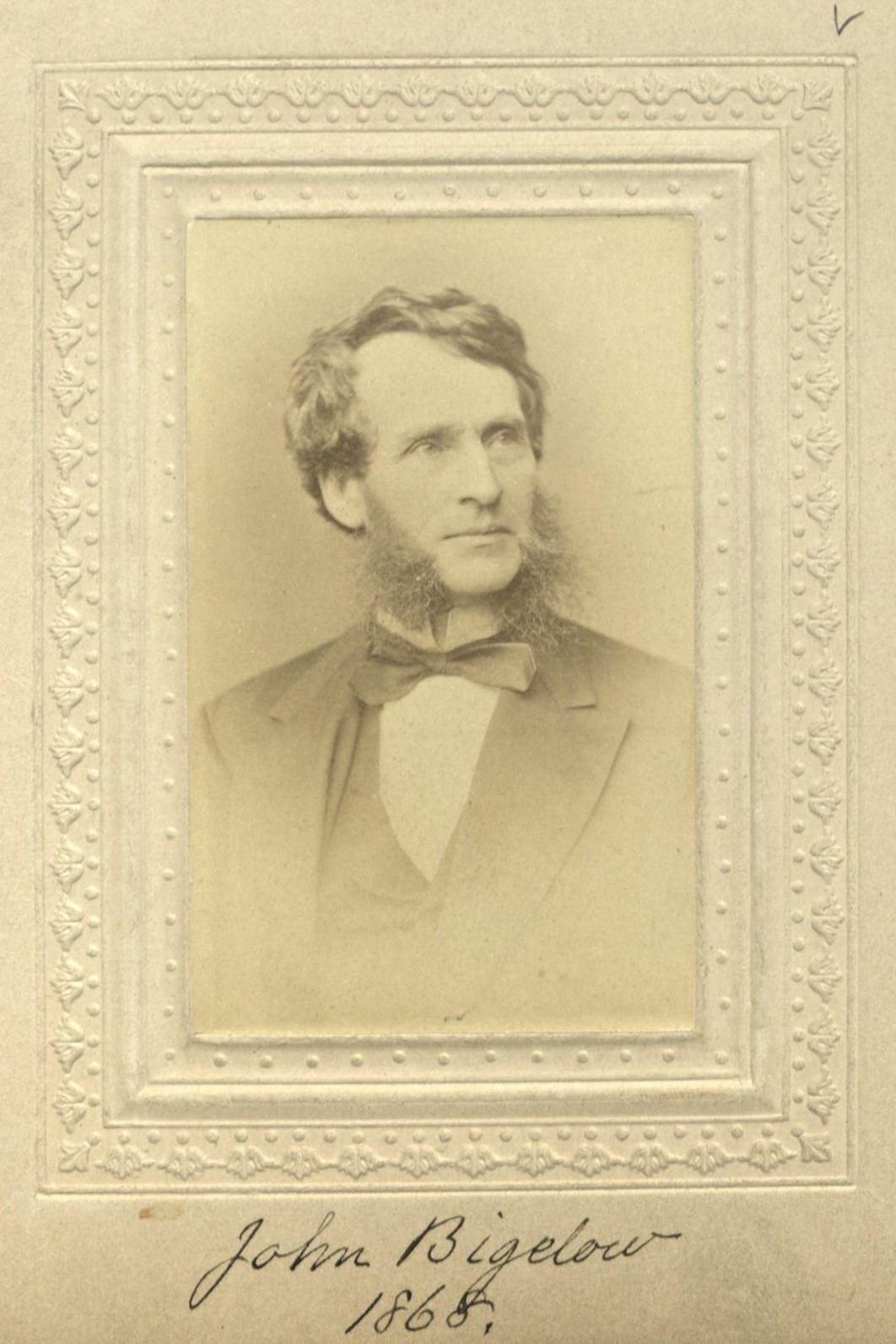 John BigelowLawyer/StatesmanCenturion, 1868–1911
John BigelowLawyer/StatesmanCenturion, 1868–1911 -
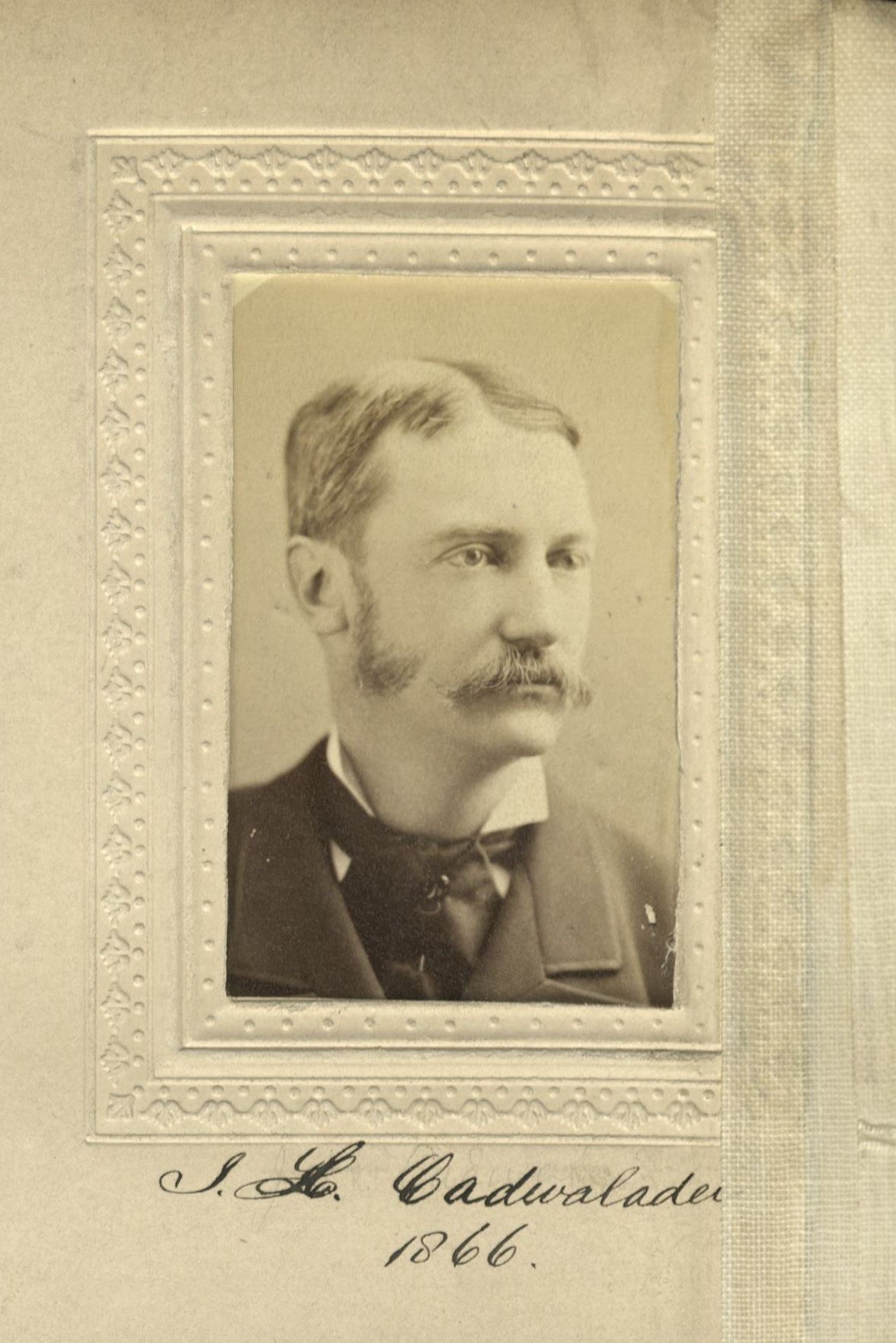 John L. CadwaladerLawyer/TrusteeCenturion, 1866–1914
John L. CadwaladerLawyer/TrusteeCenturion, 1866–1914 -
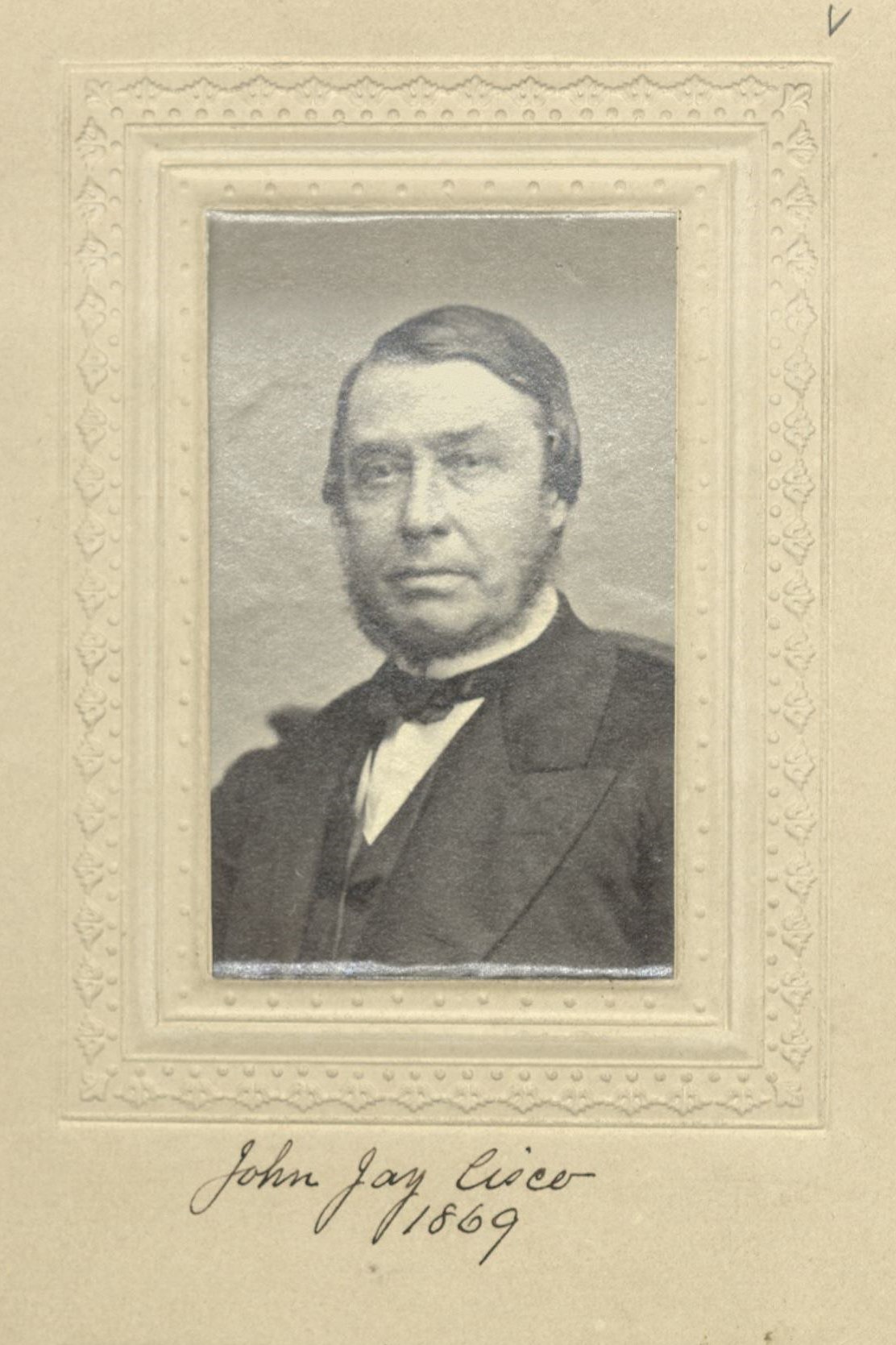 John J. CiscoBanker/Assistant Secretary of the TreasuryCenturion, 1869–1884
John J. CiscoBanker/Assistant Secretary of the TreasuryCenturion, 1869–1884 -
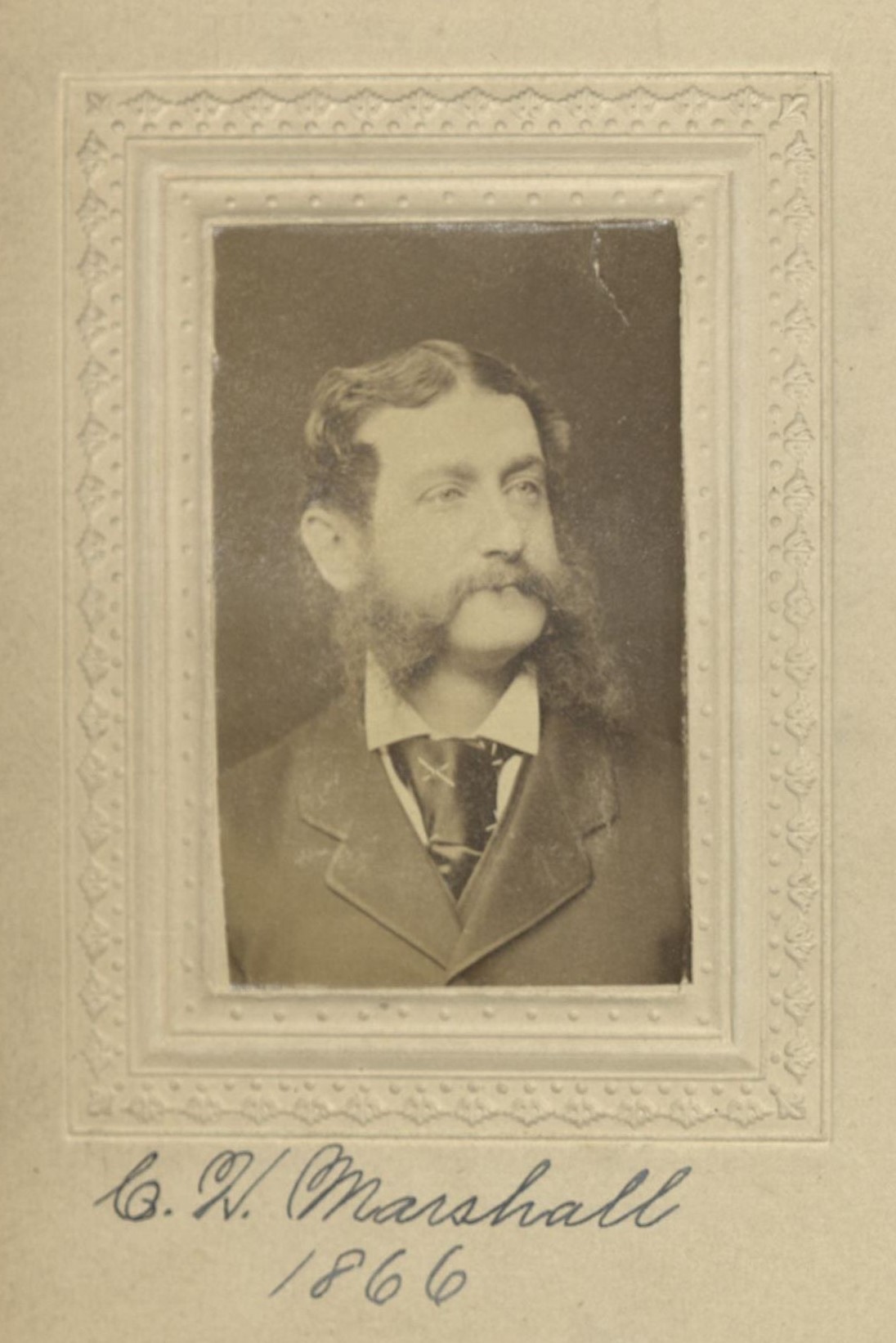 Charles H. MarshallBanker/Public ServantCenturion, 1866–1912
Charles H. MarshallBanker/Public ServantCenturion, 1866–1912 -
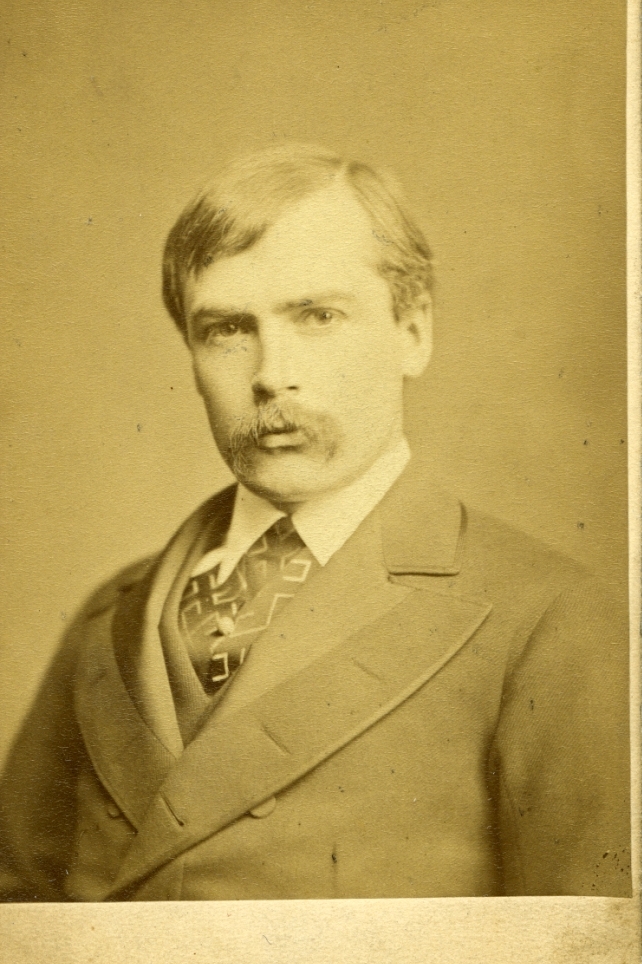 E. S. NadalProfessor/Editor/Civil ServantCenturion, 1875–1922
E. S. NadalProfessor/Editor/Civil ServantCenturion, 1875–1922 -
 Dwight TownsendMerchant (Sugar Refinery)/Insurance/CongressmanCenturion, 1860–1862
Dwight TownsendMerchant (Sugar Refinery)/Insurance/CongressmanCenturion, 1860–1862 -
 William YoungPublisher, The AlbionCenturion, 1852–1865
William YoungPublisher, The AlbionCenturion, 1852–1865






